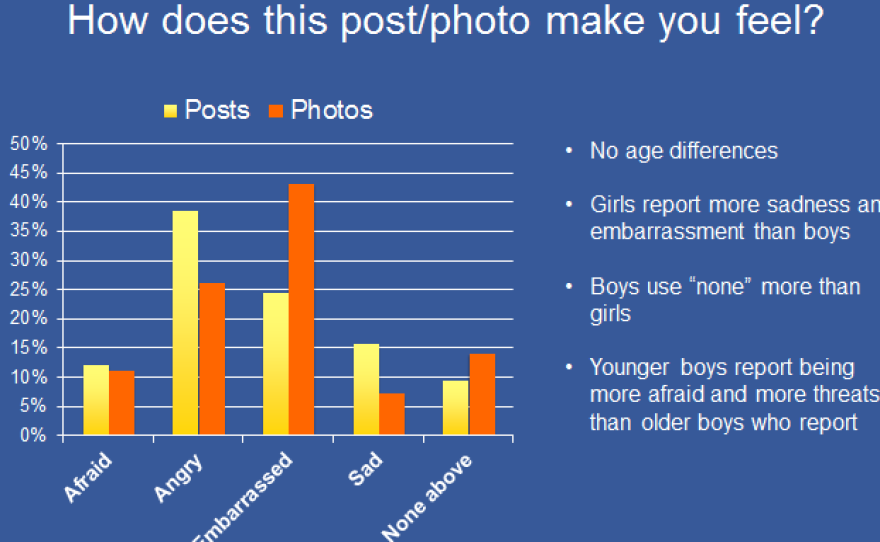Top Facebook executives have publicly apologized for a research project that manipulated news-feeds of 600,000 users.
The company chief operating officer, Sheryl Sandberg told reporters Wednesday that the research project was poorly communicated.
The social media giant drew criticism over ethical concerns this week, when a peer-reviewed scientific paper began drawing attention. A Facebook researcher manipulated nearly 600,000 newsfeeds to filter out either positive or negative posts. It was an effort to see if that would influence subsequent postings by those users.
The Facebook users did not know they were taking part in the study.

KPBS reached out to our Public Insight Network to find out how Facebook users were reacting.
Cheri Uno lives in the Los Angeles area. She said if Facebook wants to study such responses, it is fine with her; she uses Facebook with open eyes.
"They manipulate the ads that they put on there. I mean it's obvious to me," Uno said. "And I just kind of think it's funny that people would think they weren't being manipulated, just like commercials manipulate people on TV."
Diane Chau said she didn't know this was going on, but didn't think it would affect what she'll post. The San Diego resident said Facebook owns the content so they can do what they want with it.
Tony Wang noted the social media company constantly is adjusting the Facebook experience to keep users online longer. He wasn't surprised the newsfeeds were manipulated positively or negatively, but the San Diego resident wasn't entirely comfortable with the idea.
"If they start to do things that I think are invasive and I think are unethical, at that point, I'll just stop using the platform," Wang said.
San Diego resident Karen Dietz said the social media platform may be a great way to stay in touch, but how Facebook operates is troubling.
"I like it because I get to keep in contact with some of my colleagues and some family members. But I try not to use it too much because I object so much to their policies," Deitz said.
The 60-year-old small-business owner said the furor over the study has her thinking about canceling her Facebook account. She said manipulating newsfeeds to elicit a positive or negative response is unethical.
Mary Devereaux agrees. The assistant director of the San Diego Research Ethics Consortium, Devereaux said Facebook erred in the way the social media company put this research project together.
"The very first thing you ask, if you're doing research, is what makes it ethical? And they don't need my training to know that you can't do research unless you have informed consent," Devereaux said.
Facebook officials say they will change the way this kind of research is handled moving forward, but Devereaux said the issues should have been worked out long ago.
"You want to think in advance about these kinds of issues. So apologizing after the fact, I suppose, is better than not apologizing. But does it make it ethically OK? No, I don't think so," Devereaux said.
Facebook could be legally sanctioned in Europe because several data protection agencies are concerned the California company may be in violation of overseas privacy laws. Devereaux said the issue is just a reminder that the digital world's rulebook is still being written.
"Where are we going to draw the lines around privacy and what researchers can do?" Devereaux wondered. "Because there's all kinds of capacities now to sift through data. I mean the whole big data movement — whether it's health information or shopping information, or financial expenditures, and so on."
Devereaux acknowledged that there are some generational shifts in what people think about privacy. She said younger people may not think twice about an issue that greatly concerns older generations.





